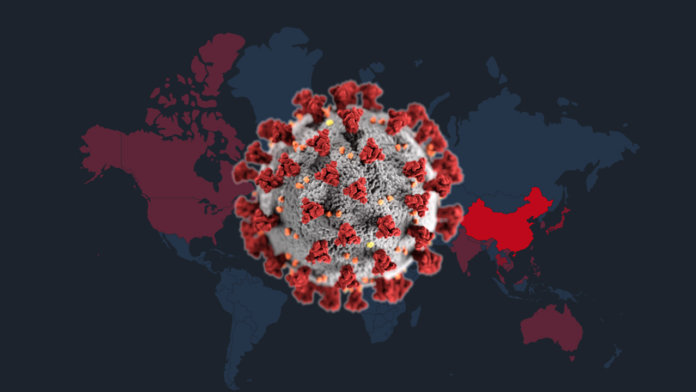The number of people infected with coronavirus in Russia has already exceeded five hundred. Not such a critical figure compared to other states, but the inhabitants of our country are worried no less. The media are heating up the situation even more. Alarming news, discussions, disappearance of goods from the shelves of pharmacies and shops - panic begins.
Fortunately, not everyone has lost their heads with fear, and most of the population remains calm. But even the most cold-blooded people are already beginning to doubt the favorable outcome of events. If you don't want to panic, take the advice of psychologists. They will tell you how to survive a pandemic and not go crazy with fear.
8. Admit you are afraid
The situation is not very pleasant, people are dying all over the world, the number of infected is growing steadily. In order not to shake with fear, you must first acknowledge it. There is no shame in this. To solve a problem, you have to accept it. A group of psychologists from the University of California Los Angeles, which was studying the fear of a certain object or action, came to the conclusion that it is imperative to say your fears out loud.
If you have no one to discuss them with, speak up to a mirror, a cat, or your favorite stuffed animal. Determine what you are most afraid of: deterioration of health, illness of loved ones or disruption of plans. Speaking negative emotions is one of the most popular ways to deal with your fears.
7. Connect with people
Citizens of the country who have recently arrived from abroad are forced to spend some time in isolation. Even if you are not one of them, you probably take all measures to avoid unnecessary contact with people. It is right. If you have the opportunity to stay at home, it is better not to tempt fate and take care of yourself a little.
This does not mean that you need to hide in your apartment and limit communication with the outside world. In addition to meeting in person, there are many other ways that you can help maintain relationships with family or friends. You can correspond, talk by phone or video call. Don't try to hide your head in the sand, don't shut yourself off from the real world.
6. Don't discuss the coronavirus situation too often
You’ve already figured out that you should not cut yourself off from communication, but choose your topics of conversation carefully. In life, so, there is enough negative. If you constantly discuss important questions: “How many people got infected?”, “How many died?” - your anxiety will never go away. On the contrary, you will live in an atmosphere of constant fear.
Of course, a minimum of information is still needed. Everything you need to know: rules of conduct in a pandemic, signs of illness. Share them with family and friends, nothing else matters.
5. Don't read fake news
 The internet is full of false information. Fear in most cases arises after meeting shocking news.Avoid unverified sources. To keep abreast of major events, go to verified sites. Avoid social media. At the moment, there is only one topic for discussion, and everyone considers it their duty to write the "latest news" from the category "one grandma said."
The internet is full of false information. Fear in most cases arises after meeting shocking news.Avoid unverified sources. To keep abreast of major events, go to verified sites. Avoid social media. At the moment, there is only one topic for discussion, and everyone considers it their duty to write the "latest news" from the category "one grandma said."
Roskomnadzor warned the media and information resources of the Internet about responsibility for disseminating false information. They will take the most stringent measures, including revoking licenses and restricting access to resources. In relation to individuals - administrative responsibility and a fine of up to 100 thousand rubles for the first violation, a second one will cost 300 thousand rubles.
4. Trust the doctors
If you find signs of coronavirus in yourself, contact a specialist. Experience shows that even infectious disease doctors cannot cope with the disease on their own. Scroll drugs in the fight against coronavirus already known, but these are just recommendations. Each case is individual, do not risk your health.
Do not refuse hospitalization, the hospital has all the necessary equipment, and if there is a threat to life, doctors will help. Don't think bad. Yes, there are those who could not overcome the disease, but the number of deaths is not so great. Most of the people are recovering.
3. Do something useful
If you are on self-isolation, or have been quarantined at work, you should not have a long relationship with the sofa and TV. Think about those things that you have long wanted to do, but did not have enough time. You can do a general cleaning in the apartment, sort things in closets, read an interesting book, and do self-education.
If you have kids, this is a great time for the whole family. Play, be creative, walk. By the way, about walks. Doctors do not forbid them, fresh air is very useful. Just try to walk where there are fewer people. Avoid noisy streets. If possible, go to the park, to nature, it will give you peace. You will rest not only with your body, but also with your soul.
2. Don't worry if things don't go according to plan.
Some individuals are worried not because of illness, but because they cannot go on a trip or a decisive business trip. Yes, celebrating a birthday in a restaurant is also unlikely to work, and the purchase of a car will have to be postponed. Prices go up, people are out of work, the economy suffers from the coronavirus... There are many reasons for worrying, but are they worth it?
Now the main thing is your health and the health of your loved ones, not a career or a trip to Europe. Think good. If that doesn't help you, think bad. Think back to the most difficult times in your life. Everything will pass, the situation will return to normal sooner or later. Don't worry about things that you cannot influence.
If you can't calm down, do a little exercise. Draw two scales on paper. One of them is your plans, and the second is the risk of contracting the coronavirus and infecting other people with it. Weigh the pros and cons and all your regrets will evaporate.
1. Think about the illnesses that you have already experienced
 Every person gets sick during his life, and more than once. ARVI, ARI are the most common diseases. Nobody panics when they get a runny nose. Of course, in the case of coronavirus, everything is much more serious, but consider that this is not the first disease that you have had to fight.
Every person gets sick during his life, and more than once. ARVI, ARI are the most common diseases. Nobody panics when they get a runny nose. Of course, in the case of coronavirus, everything is much more serious, but consider that this is not the first disease that you have had to fight.
There are much more dangerous diseases - oncology, HIV. Most of them are incurable. Hundreds of young children who have just begun to live are struggling with cancer and cerebral palsy. There are many terrible things in the world, and a pandemic is not the worst thing that can happen.
Hope for the best, observe safety measures and remember, the coronavirus epidemic is not forever.

